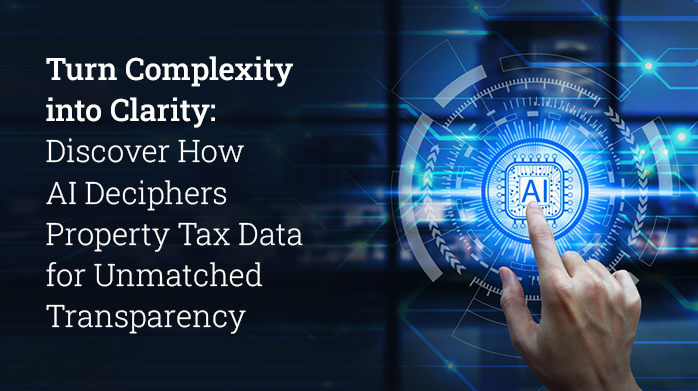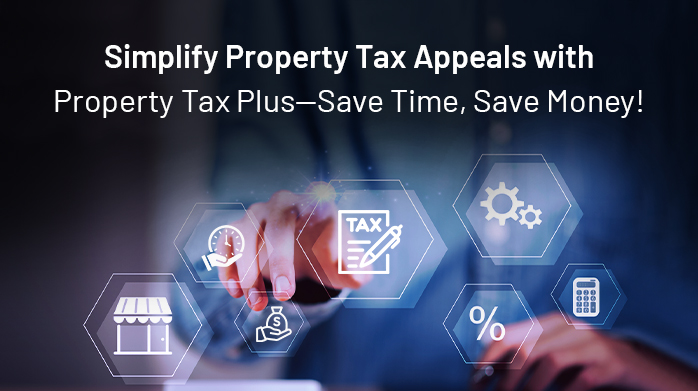Property tax management has long been a complex, time-consuming task for companies, consultants, and clients. Managing tax assessments, ensuring compliance, and processing vast amounts of data from multiple jurisdictions can be daunting. However, the introduction of AI-powered solutions has begun to transform property tax management, significantly improving transparency and accountability. By providing clear, actionable insights and fostering more informed conversations about tax liabilities, AI-driven systems are revolutionizing the way property tax solutions are handled.
AI-Powered Efficiency in Property Tax Management
One of the most powerful applications of AI in property tax management is its ability to streamline data handling and automate routine processes. Traditional methods often involve manual review of tax documents, error-prone data entry, and lengthy compliance checks. With AI, particularly through GPT-based search tools and automation, many of these tasks are now handled with speed and precision.
For example, AI-powered property tax management software can offer instant, real-time responses to tax-related queries. This provides consultants and companies with critical information as soon as it’s needed, reducing delays in decision-making and improving overall efficiency. Additionally, AI-driven property tax automation ensures that tasks such as document processing and data extraction are handled accurately, freeing up professionals to focus on strategic tasks rather than mundane ones.
Key Functionalities Driving Transparency
AI solutions provide several key functionalities that enhance transparency in property tax management:
– Real-Time Query Handling: AI-powered tools allow users to ask complex questions about their tax data and receive accurate, real-time answers. This reduces the lag time in tax assessments and increases the clarity of data interpretations.
– Automated Document Processing: Optical Character Recognition (OCR) technology enables AI systems to quickly extract relevant tax data from multiple formats, whether they be digital or paper documents. This automation reduces human error and enhances data accuracy, leading to more trustworthy assessments.
– Comparative & Common Size Analysis: AI systems can perform advanced data analysis, identifying trends, discrepancies, and cost distributions across jurisdictions. This allows for a more thorough understanding of tax data and helps uncover hidden opportunities or risks.
– Customizable Reports & Dashboards: AI-powered property tax solutions provide tailored reports and dashboards that make it easier for users to access and interpret their tax data. These visual tools offer clear insights into key metrics, fostering more informed conversations with stakeholders.
Architectural Overview for Enhanced Property Tax Management
The architecture of AI-driven property tax software is designed for usability and scalability. It integrates three core layers:
– The presentation layer, where users interact with a web or mobile interface designed for intuitive searches and data visualization.
– The logic layer, powered by Natural Language Processing (NLP) and GPT models, which processes user queries and generates intelligent, data-backed responses.
– The data layer, which securely manages large volumes of tax data, integrating with external databases and APIs for real-time updates and scalable performance.
AI in Action: Improving Transparency and Accountability
By automating routine tasks and generating easy-to-understand insights, AI-based property tax automation creates a level of transparency that was previously hard to achieve. Automated processes eliminate manual errors, provide real-time visibility into tax assessments, and ensure that clients, consultants, and companies are all working from the same data. This fosters a deeper level of trust and accountability in property tax management.
As more companies embrace AI-driven property tax management software, they not only benefit from improved efficiency but also from enhanced decision-making and compliance. These tools provide a clear picture of tax liabilities and allow stakeholders to make data-backed decisions with confidence.
Hence, companies seeking to leverage AI for greater transparency in property tax management can turn to advanced solutions like Property Tax Plus, which integrates cutting-edge AI technologies to streamline processes, foster accountability, and enhance decision-making for clients and consultants alike.







